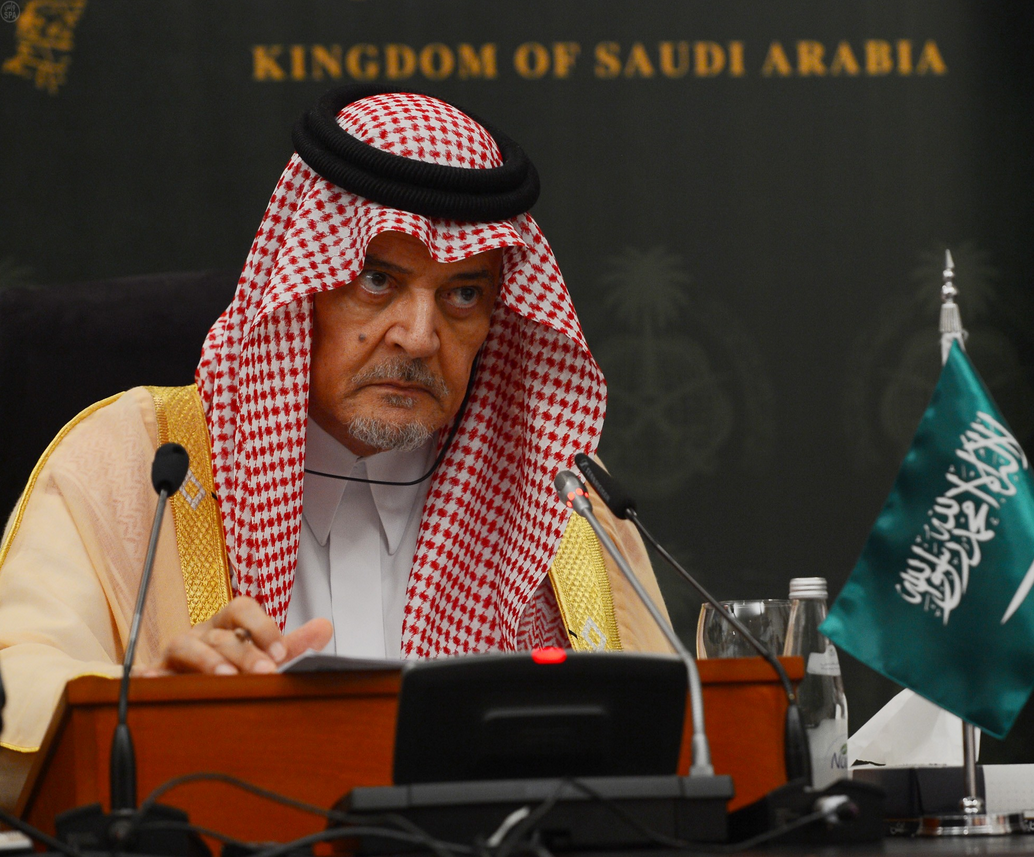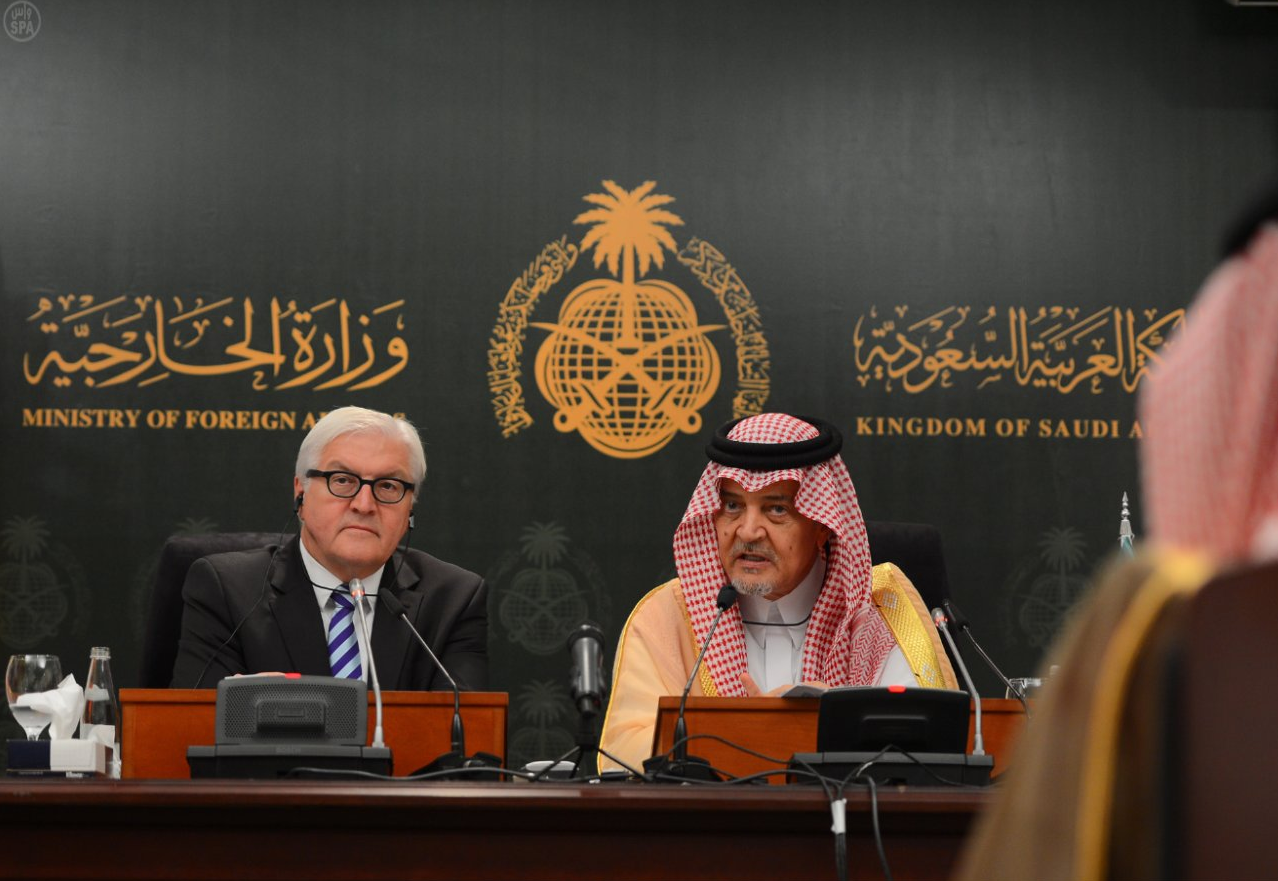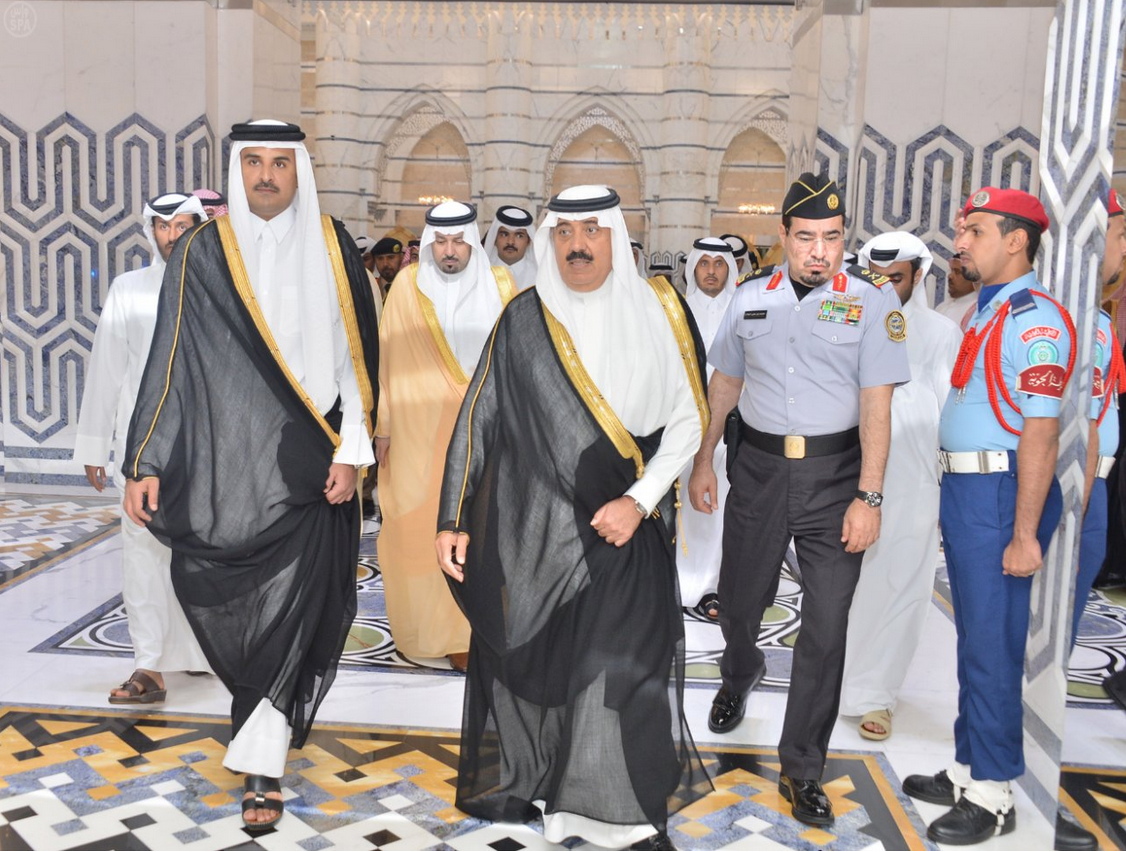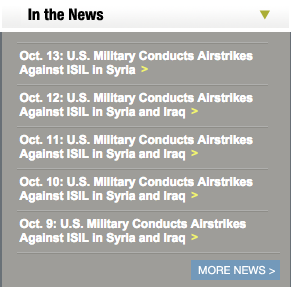The Kingdom of Saudi Arabia had an active start to the week for its regional policy as the Emir of Qatar and Germany’s Foreign Minister were in Jeddah to meet with Saudi officials.
Qatar’s Emir Sheikh Tamim bin Hamad al-Thani met with King Abdullah at his palace on the Red Sea, while Prince Saud al-Faisal met with his German counterpart.
Al-Faisal Calls Out Iran
Meeting with Germany’s Foreign Minister Frank-Walter Steinmeier, whose government recently approved assistance in the fight against IS, Prince Saud al-Faisal took the occasion to draw attention to alleged Iranian interference in Syrian affairs.
An AP report carried some of the comments made by al-Faisal, the longest-serving Foreign Minister in the world. “In many of these conflicts, Iran is part of the problem and not part of the solution….If Iran wants to contribute to solving the problems in Syria, it should withdraw its troops from Syria,” the AP reports.
Although al-Faisal delivered sharp comments at Iran after the meeting, the German Foreign Minister reportedly told a newspaper that his government is interested in seeking both Turkey and Iran’s help in fighting IS, according to Reuters.
Arab News carried more of al-Faisal’s comments regarding Iran. “They (the Iranians) are killing the Syrian people. They are spilling Syrian blood. They were invited to Syria by the Bashar Assad regime and since that regime has lost legitimacy, the Iranians are actually an occupying force in Syria now…Assad cannot be trusted. His regime has opened its gates to foreign terrorists. Syria has become a nest of terrorists. This is threatening not just the neighboring countries but the entire international community.”
The Iranian government, through the IRNA news agency, responded saying “the remark, if the report carried it precisely, is in contradiction with diplomatic negotiators between the two countries.”
King Abdullah, Qatari Emir Meet
The official SPA said that Saudi Arabia’s King Abdullah had a productive meeting with “his brother” Qatar’s Emir Sheikh Tamim bin Hamad al-Thani in Jeddah. “During the meeting, they discussed cooperation between the two countries in addition to the overall events and developments in the Arab, Islamic and international arena,” the SPA said.
A report today said that the Qatari Emir tried to convince King Abdullah that Qatar “had done everything it could to resolve a dispute over Doha’s links with Islamist groups, but [King Abdullah] appeared unconvinced,” a Gulf security source told Reuters on Tuesday.
Although Qatar and Saudi Arabia are neighboring Arab states the two countries have not always seen eye to eye on regional affairs. But, with both countries participating in the US-led attacks on IS in Syria and Iraq they have found a common goal in the efforts to stamp out the extremist group, militarily and otherwise.
In Saudi Arabia, key members of the religious establishment and Government officials have blasted IS as extremist and have cracked down on expressios of sympathy or support from domestic sources. Qatar’s government recently drew praise from journalists for working with the Atlantic magazine based in Washington, D.C. to free a journalist. In that riveting story reported by the Washington Post’s Liz Sly and Adam Goldman, Qatar’s Ghanim Khalifa al-Kubaisi, the chief of Qatar’s intelligence service worked with the Atlantic’s David Bradley and a retired FBI agent to free the journalist, Peter Theo Curtis.
U.S.-Arab Airstrikes Continue
The U.S. military and Saudi forces continued joint strikes in Syria and Iraq on Islamic State (IS) positions, according to CENTCOM.
CENTCOM’s public statements have been dominated by daily reports of strikes on IS positions, although the effectiveness of these strikes in perceptively turning the tide of the conflict in places like Kobane and elsewhere has been questioned and raised fears that mission creep may be on its way for a war-wary U.S. public.
But speaking in Cairo, U.S. Secretary of State John Kerry seemed to dismiss this notion, noting that he would rather have U.S. airpower and that IS is only temporarily taking advantage of coordination challenges between coalition forces. “I’d rather have our hand than theirs for the long run, and I think there a lot of people in the region who know that,” Kerry said.












